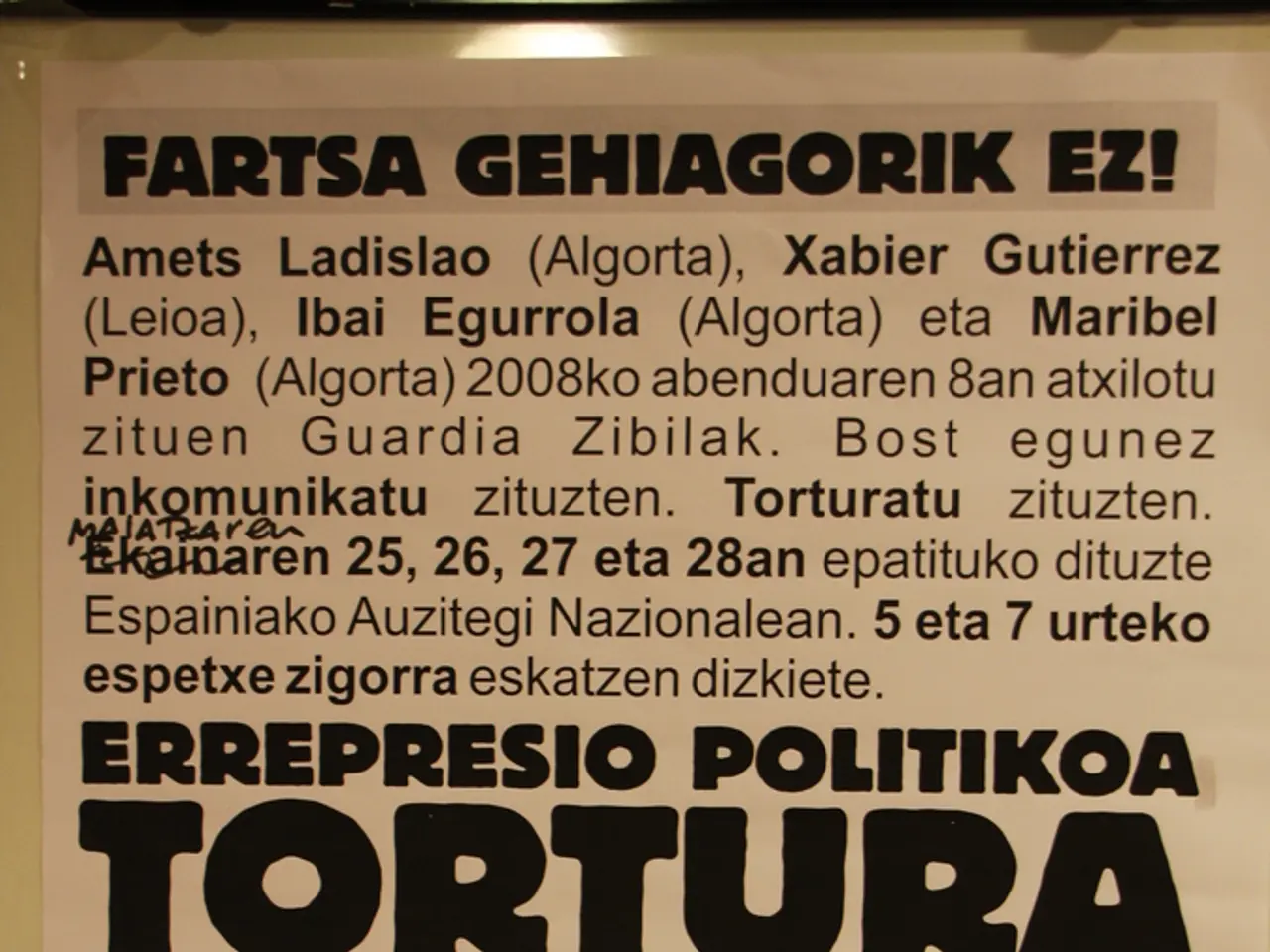Spain's Antitrust Journey Spanning Two Decades: A Look at Two Decades of Competition Regulation in Spain
Spain's competition enforcement agency, the CNMC, established in 2007, quickly made a name for itself as one of Europe's more proactive antitrust authorities. However, since 2016, the agency has experienced a significant decline in cartel enforcement activities.
This decline is primarily due to a combination of legal, economic, and institutional factors. The most significant factor is the sharp drop in leniency applications by companies, which fell by 80% in Spain between 2015 and 2021. This decline is linked to the adoption of the EU Damages Directive (Directive 2014/104/EU), implemented in Spain in 2017, which increased the risk for leniency applicants by exposing them to substantial private damages claims.
The Spanish courts have been overwhelmed by follow-on private enforcement cases, especially related to cartels in sectors like European trucks and Spanish automotive industries. This court congestion has reduced the attractiveness of leniency and enforcement efforts. Furthermore, evolving economic conditions, including the rise of digital platforms and sustainability-driven cooperation, have complicated cartel detection and enforcement, requiring new institutional approaches and tools to address these challenges effectively.
The CNMC's initial period after establishment was marked by a flurry of antitrust investigations, particularly in the area of cartel enforcement. However, from 2016 onwards, the agency's enforcement landscape underwent a shift, with fewer investigations and a narrowing enforcement focus. Institutional and resource constraints have reduced the CNMC's bandwidth for time-intensive dawn raids and cartel analyses.
The technological frontier of cartel behavior in digital and platform markets demands that enforcement agencies significantly enhance their data analytics capabilities and inter-agency cooperation to keep pace with cartel innovation. The 'Brava' programme launched by the CNMC is a specialized initiative designed to strengthen the agency's capacity in digital forensics and advanced data analysis, but its effectiveness beyond the narrow scope of public tenders remains unproven.
The decline in cartel enforcement in Spain is mirrored by a broader downward spiral at the EU level, with total fines imposed by the European Commission falling to their lowest since at least 2005. Restoring the CNMC's capacity requires reinforcing its independence, ensuring stable funding, and giving it the tools to plan strategically across political cycles.
Establishing a robust and transparent settlement mechanism in Spain's antitrust procedure could streamline case resolution, reduce litigation costs, and reinforce deterrence by increasing the number of concluded cases. Introducing a settlement mechanism would furnish the CNMC with a powerful fourfold advantage: fostering early cooperation by investigated firms, improving the ex ante detection of cartels, reducing legal uncertainty for defendants, and ultimately ameliorating the overall deterrent effect of enforcement.
The decline in cartel enforcement carries a risk of neglecting more discreet but damaging cartels operating within the domestic economy. The CNMC is refocusing scarce investigative resources towards cases with systemic reach, such as dominance abuse in digital markets or high-profile mergers.
The CNMC faces a double challenge: gathering increasingly granular evidence in markets with covert collusion and sophisticated concealment tactics, and doing so under intense judicial scrutiny. Spanish courts have increasingly aligned with the standards set by the Court of Justice of the European Union, demanding direct proof or incontrovertible indications of concerted practices.
The European Union's approach to uncovering cartels is gradually pivoting from public enforcement to private litigation, with fewer leniency applications undermining the primary source of cartel intelligence. This shift could intensify the enforcement gap between public and private litigation, weakening deterrence, depriving victims of redress, and limiting the ability of courts to play their complementary role in the European antitrust ecosystem.
- The CNMC, established in Spain in 2007, was initially known for its proactive approach to international antitrust practices.
- However, since 2016, the agency has seen a significant drop in its cartel enforcement activities due to a combination of legal, economic, and institutional factors.
- One of the most significant factors contributing to this decline is the 80% drop in leniency applications by companies between 2015 and 2021.
- This decline is linked to the adoption of the EU Damages Directive (Directive 2014/104/EU), implemented in Spain in 2017, which increased risks for leniency applicants by exposing them to substantial private damages claims.
- Spanish courts have been flooded with follow-on private enforcement cases, particularly in sectors like European trucks and Spanish automotive industries, further reducing the attractiveness of leniency and enforcement efforts.
- Evolving economic conditions, including the rise of digital platforms and sustainability-driven cooperation, have complicated cartel detection and enforcement, requiring new institutional approaches and tools.
- The CNMC launched the 'Brava' programme to strengthen its capacity in digital forensics and advanced data analysis, but its effectiveness beyond public tenders is yet to be proven.
- The decline in cartel enforcement in Spain mirrors a broader downward spiral at the EU level, with total fines imposed by the European Commission falling to their lowest since at least 2005.
- Restoring the CNMC's capacity requires reinforcing its independence, ensuring stable funding, and giving it the tools to plan strategically across political cycles.
- Establishing a robust and transparent settlement mechanism in Spain's antitrust procedure could streamline case resolution, reduce litigation costs, and reinforce deterrence by increasing the number of concluded cases.
- This mechanism would provide the CNMC with a powerful fourfold advantage: fostering early cooperation by investigated firms, improving the ex ante detection of cartels, reducing legal uncertainty for defendants, and ultimately improving the overall deterrent effect of enforcement.
- Neglecting more discreet but damaging cartels operating within the domestic economy poses a risk due to the CNMC's refocusing of scarce investigative resources towards cases with systemic reach, such as dominance abuse in digital markets or high-profile mergers.
- The EU's approach to uncovering cartels is shifting from public enforcement to private litigation, which could intensify the enforcement gap between public and private litigation, weakening deterrence, depriving victims of redress, and limiting the ability of courts to play their complementary role in the European antitrust ecosystem.




